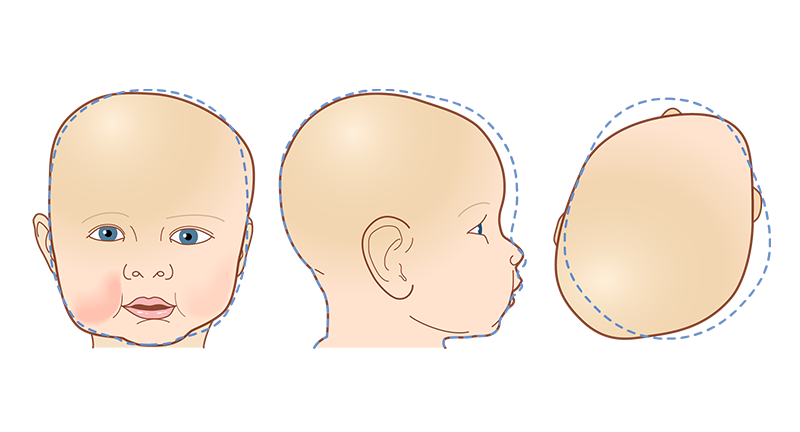Understanding the condition
Congenital Muscular Torticollis (CMT), also known as torticollis, twisted neck, or wryneck, is a condition in which an infant’s head is tilted to one side and he or she has difficulty turning the head. Generally, this is the result of a muscle strain to the one of the main neck muscles, the sternocleidomastoid (SCM).
In congenital torticollis, the muscle that extends down the side of the neck - the sternocleidomastoid muscle -- is tight and shortened. Although this awkward position can be distressing for parents to observe, it is generally not painful for the child. However, it can result in further complications such as plagiocephaly, difficulties in breastfeeding, as well as other conditions such as: delayed motor development, impaired balance, visual disturbances (visual field, astigmatism), orthodontic and jaw problems (TMJ), auditory problems, and oral motor problems. In some cases, torticollis can develop after the birth of baby if the baby is not repositioned adequately and appropriately to prevent tightening of the muscles in the neck. Research suggests that the incidence of CMT may be as high as 16% and in a 2008 United States study researchers identified as many as one out of six newborns with CMT. CMT is the number one condition associated with plagiocephaly. 70-80% of babies with plagiocephaly have CMT. Whatever the cause, torticollis should not be ignored.

Symptoms
Symptoms of Torticollis can include:
- Head tilts to one side while chin points to the opposite shoulder. In most cases, the right side of the neck is affected.
- Limited range of motion in the neck causes difficulty in turning the head side to side, and up and down.
- Side of the head may flatten because the child always sleeps on one side.
- During the baby's first few weeks, a soft lump may be felt in the affected neck muscle.

